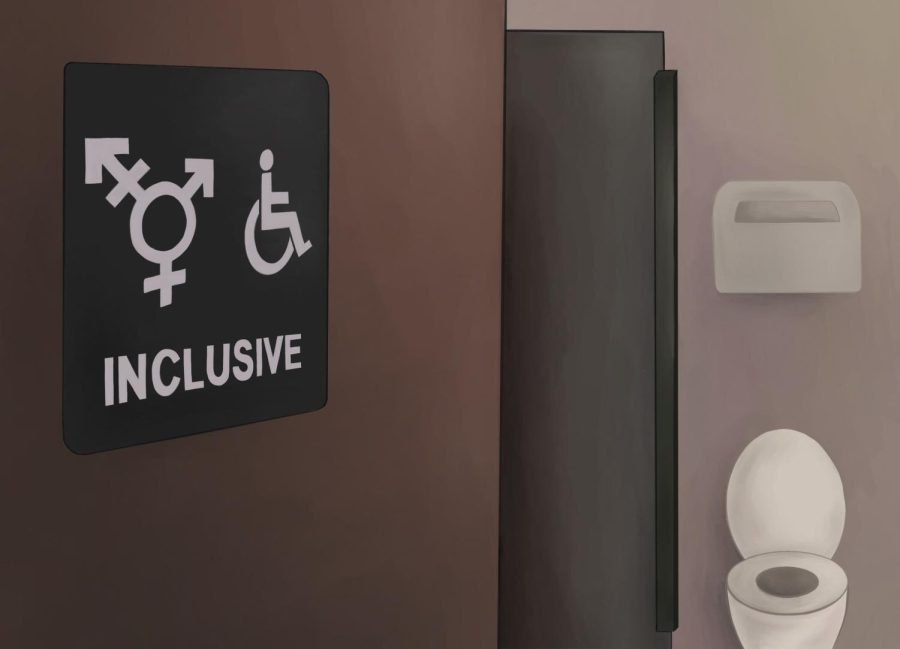Opinion: Unlabeling my gender journey
Sometimes, the world is too black-and-white. We’re taught to view ourselves in one box or another, labeling ourselves into terms that we have to force ourselves to be. Introvert or extrovert, optimist or pessimist. Even the LGBTQ+ community perpetuates this: man or woman. Gay or straight. Cis or trans.
For me and many others, not labeling myself is the solution to the constant restraints and expectations that come with labels. I define myself as “non-binary” because that is the closest to how I feel, a term others know and understand. It’s easier to label myself without explaining my relationship with gender. But there’s a constant niggling imposter syndrome — that I’m not “non-binary” enough to be one, or that I don’t fit the expectations that people seem to hold for non-binary people. I don’t experience body dysmorphia or flinch when people assume my gender.
These worries push me further from using the label “non-binary” — if the same label that’s supposed to bring me comfort and community is doing the exact opposite, then what’s the point in labeling myself?
I’ve decided to just not care. I know most people will still use she/her, I know most people won’t see me as anything other than “girl,” as anything near “non-binary.” But I don’t feel the need to subvert their expectations — to make myself outwardly look as if I question my gender identity. People will think what they want to think, believe what they want to believe, but if I know who I am, then I don’t care what others call me.
And who am I? A series of contradicting terms and labels? Some days, I love my feminine body — the way my lips shine, applying mascara and hugging my curves. There’s days where I desperately want the cocky-confident aura all guys seem to have. My gender is my own, and as it fluctuates and changes, no real “label” seems to fit me.
Sure, there’s stability in labels, community in knowing exactly what you are and where you belong. But there’s also relief in unlabeling. And that is the point — there’s no need for you to define yourself the way others do. If you find comfort in labeling, do it. If it’s restrictive, don’t. That is the point of gender, the core of the LGBTQ+ community: being able to be who you are and being comfortable in it.
So, when someone asks me, “What pronouns do you use?”
I say, “Any. I don’t care.” And it’s something like freedom.
This guest writer chose to remain anonymous due to privacy concerns.





Sun | Jan 10, 2024 at 7:29 am
Non-binary is an umbrella, not necessarily a label itself.